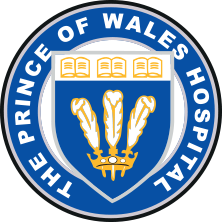Epilepsy Clinic
How we can help you
We work with your local general practitioner (GP) and other health care professionals to help you look after conditions that cause seizures or blackouts.
We will work with you while you are in hospital or at home to identify the cause of your seizures or blackouts by using tests such as an electroencephalogram (EEG). We will help you and your family/carers to manage your condition and will provide advice on what it means for driving, working, pregnancy and leisure activities.
We may also refer you to other specialist health professionals or assess you for procedures such as surgical therapy or vagus nerve stimulator therapy. This may involve admission to the Epilepsy Monitoring Unit for video-EEG or we may suggest ambulatory EEG. We may refer you to other support services and will assist young adults to transition from the Sydney Children’s Hospital to Prince of Wales Hospital.
All of our consultations are bulk billed.
We are one of the Neurology Services our hospital provides.
Our team includes:
Specialist doctors
Neurologists - Professor Ernest Somerville
Dr Hanka Laue-Gizzi, Dr Christian Zentner, Dr Penelope Gordon and Dr Daniel Ghougassian are our medical specialists. We also have as specialist doctors in training. Our doctors will assess, treat and help you manage your condition.
Neurosurgeon - Dr Ruth Mitchell
Neuropsychiatrist - Dr Adith Mohan
Neuropsychology
Neuropsychologists based at Neuropsychiatric Institute.
Clinical Nurse Consultant
Ms Bobbi-Jo Byrnes provides education and counselling and is the person you can speak to if your have any questions or concerns between appointments.
Vagus Nerve Stimulator Co-ordinator
Mrs Jenine Murray
Clinical Trials and Research Co-ordinator
Mrs Suja Varghese
Inpatient VEEG and Outpatient AEEG Coordinator
Mrs Roxanne Fielding, senior technical officer, performs long-term EEG studies and is responsible for VEED and AEEG booking and coordination.
Advanced Imaging Analysis
Dr Danny Flanagan, senior technical officer, performs long-term EEG studies and advanced imaging analysis.
Secretary
Ms Natalie Dambiec will help you make appointments and provide information about what happens at the clinic. She will also answer calls from patients who need to contact us between appointments.
|
Comprehensive management of epilepsy patients |
Three times a week |
9382 3805 |
9382 3899 |
Prof Ernest Somerville, Dr Hanka Laue-Gizzi, Dr Christian Zentner, Epilepsy Fellow |
|
First seizure diagnosis and management |
Twice weekly |
9382 3805 |
9382 3899 |
Prof Ernest Somerville, Dr Hanka Laue-Gizzi, Dr Christian Zentner, Dr Penny Gordon, Dr Daniel Ghougassian, Epilepsy Fellows |
Your GP, another specialist doctor or the Emergency Department doctor will decide if you need to use our services. If they think you do, they will send a referral to one of our specialist doctors explaining your medical history, relevant test results and what medicines you are taking.
Once we have your referral we will send you your appointment letter in the post. Please provide your mobile phone number you so we can send you an SMS reminder 2 days before your appointment. You must reply to this text or your appointment will be cancelled. You must reply to this SMS reminder or your appointment will be cancelled.
The clinics run on Mondays, Tuesdays and Wednesdays.
If you need to change or cancel your appointment please telephone the clinic on 9382 3805. Please leave a voicemail if the call is not answered.
Waiting times
You may need to wait up to several months to be seen in the clinic. If your GP thinks you need an urgent appointment they need to telephone the clinic to discuss your needs.
On the day of your first appointment please bring:
- Your referral letter from your GP
- Your Medicare card
- MRI scans
- A list of your medicines or bring all your medicines in a bag, including any herbal or over the counter medicines
- Any medical records or reports that you have. This may save us and you considerable time and even reduce the number of visits necessary
- You are welcome to bring a support person (a relative, friend or carer) with you.
- If this is your first visit, it is helpful to bring someone with you who has seen one of your attacks
If you have a Medicare card and your doctor includes the name of one of our doctors in the referral, the hospital will bulk bill Medicare and you will be charged nothing. If you wish to be treated as a Public Patient, you will not be charged and Medicare will not be billed. This will not affect your treatment in any way. In some other situations (including referrals from the Emergency Department), you will pay nothing and Medicare will not be billed. If you do not have a Medicare card or are visiting from a country that does not have a Reciprocal Healthcare Agreement with Australia, you will be billed by the hospital.
Please let us know if you need an interpreter. You can contact us by telephoning the Translating and Interpreting Service (TIS) on 131 450. Tell the operator what language you speak and then ask the interpreter to set up a telephone conversation between you, an interpreter, and the healthcare professional you want to speak with.
We are teaching hospital and you may be asked to be involved in research, including clinical trials or for a student to be present at your appointment. You have a right to say no. If you do so, this will not impact in any way on the services we will provide.
